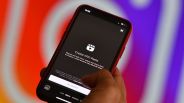President Barack Obama believes that mobile phone unlocking will give "ordinary Americans more flexibility and choice" in their everyday cell phone use.
In bolstering his words, the president inked the Unlocking Consumer Choice and Wireless Competition Act that will allow Americans to purchase unlocked phones, which should give them the ability to use their devices when abroad.
The new act aimed to resolve legal issues pertaining to the Digital Millenium Copyright Act that basically barred users from having their cell phones unlocked, according to analysts. The law repeals a Library of Congress decision that made unlocking cell phones illegal in this country.
That ruling led to a movement by consumers to get Congress to take action, garnering over 110,000 signatures in a petition aimed at making unlocking phones legal. The new act inked by Obama is the first time ever that a petition of this kind has been successful in having legislation brought in its favor.
"This commonsense legislation ensured that consumers could transfer their phones between carriers, and that second-hand phones could be put to good use by new owners connecting to a network of their choice," the Obama administration wrote in a release.
Despite the new ruling, cell phone companies will not be required to offer unlocked phones, nor will they be forced to unlock any customers' phone without a valid reason for doing so, which could lead to legal action down the road.
Still, the White House was optimistic that this new law will help consumers.
"What we saw in the end was a bipartisan commitment to solve a problem that affects millions of Americans," said the statement. "The bill not only restores the rights of consumers to unlock their phones, but ensures that they can receive help doing so if they lack the technological savvy to unlock on their own."
Tech Times reports that most cell phones purchased through American carriers have software developed into their systems that prevents users from changing SIMs on the phone, even following the expiration of the standard two-year contract. The same report also said that cell phone unlocking has been a contentious issue for those who travel outside the U.S. and still want to use their phone on a local network.
SIM, short for Subscriber Identity Module, is a small circuit board which is placed in your phone to identify it to your carrier. When you swap a SIM card, your phone number, voice, and data plans are swapped along with it. When a phone is locked, it can't be run on another carrier.
The new law should help consumers with unlocked phones transfer to another carrier, athough there are other considerations for traveling such as whether it's a "world phone," a phone that has both CDMA and GSM support, and whether your U.S. phone runs on GSM or CDMA technology.
In the U.S., wireless carriers generally run on two types of technology: GSM or CDMA. AT&T and T-Mobile use GSM for their network, while Verizon and Sprint use CDMA. The two technologies are incompatible with one another, according to reports, so consumers may still face a few hurdles before they can use their phone while traveling or move it to another carrier.




